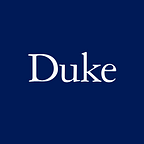Five Reasons Why the US-Vietnam Relationship Matters
By Renate Kwon and Edmund Malesky, Duke University
When Chinese President Xi Jinping visited the U.S. in April, many observers noted the new administration’s emphasis on allies (Japan, South Korea) and competitors (China) in Northeast Asia. Given these nations’ regional and global significance, it is understandable that President Trump concentrated his attention on making his “America First” platform more palatable to some of the U.S.’ top trade partners.
Amid this focus on geopolitical giants, however, the importance of Southeast Asian nations, particularly Vietnam, to the U.S.’ long-term strategic interests cannot be overlooked.
The White House visit by Vietnamese Prime Minister Nguyễn Xuân Phúc on May 31 will be the first by a leader of a Southeast Asian nation since Trump’s inauguration. It signals awareness of the tremendous opportunity to build on the foundations laid by Presidents Bush and Obama to establish a strong framework for cooperative development and peaceful engagement.
Despite substantial achievements in building healthy economic and cultural interactions, there is reason to worry whether the momentum will continue. There is a risk that inattention to these sensitive ties could damage a burgeoning economic partnership and a nascent but growing security relationship. In his short time in office, President Trump has yet to build upon several important initiatives begun under the three previous presidential administrations, including normalizing trade relations, arms sales and Vietnamese commitments to reform state-owned enterprises and improve labor rights.
Also, Vietnam could previously count on several powerful voices in Washington, including Sens. John McCain, John Kerry, Bob Kerrey and Jim Webb. As veterans, these politicians shared a commitment to help Vietnam recover from war damage and reintegrate into the global economy. With the loss of this advocacy coalition (only McCain remains in office), Vietnam urgently needs to strengthen its diplomatic, economic and social ties with the United States. Five pillars of mutual interest are critical.
First, there is a need to promote trade between the U.S. and Vietnam. The Regional Comprehensive Economic Partnership (RCEP), strongly preferred by China, has emerged as the likely alternative to the beleaguered Transpacific Partnership (TPP). To balance against this influence, the frayed threads of the TPP should be rewoven into the fabric of a strong bilateral agreement that will enable the U.S. to retain a measure of its influence with a dynamic emerging market.
Second, security cooperation is of strategic interest to both countries. The South China Sea has become a critical flashpoint for the region, and Vietnam needs a security partner to ensure this essential waterway will be accessible to all. The Trump administration has made no secret of its desire to have partners shoulder more of the security burden, and Vietnam’s willingness in this area should be considered an asset.
Third, in the diplomatic arena, elevating the existing relationship to one of a strategic partnership would provide a template for other Southeast Asian nations seeking alternatives to Beijing’s orbit. Given China and Vietnam’s long and complex relationship, enabling the Vietnamese leadership to engage with multiple great powers would promote regional stability along comfortable lines.
Fourth, academic exchanges between the two countries can be expanded to nurture a new generation of talented leaders. The Vietnam Education Foundation cultivated a positive view of the U.S through providing scholarships for talented Vietnamese graduate students to study in the U.S. as well as sending American faculty to teach in Vietnam. The new U.S.-supported Fulbright University is the country’s first independent, nonprofit university, promising to deliver a world-class education to Vietnamese students.
Finally, the two countries should build on the robust economic exchange that has blossomed in recent years. Vietnam has left central planning long behind and is now one of the world’s most entrepreneurial societies with well over 400,000 formal, private companies. A Pew poll found 95 percent of Vietnamese citizens believe people are better off in a free-market economy. U.S. investment and trade in the country has contributed to these transformations, including through a USAID-funded annual Provincial Competitiveness Index (PCI), tracking reforms to economic governance and the regulatory environment. The dynamic Vietnamese economy has seen astounding 42 percent growth in U.S. exports to Vietnam to just over $10 billion.
Despite the legacy of war, Vietnam is perhaps the U.S.’ most enthusiastic Southeast Asian partner. The same Pew poll found that 76 percent of Vietnamese view the U.S. favorably, far greater than any other country in the region.
Prime Minister Nguyễn’s visit represents an important chance to make significant economic and diplomatic progress benefitting the citizens of both nations.
Renate Kwon is program manager of the Southeast Asia Research Group.
Edmund Malesky is a political scientist at Duke University and the lead researcher for the US-AID funded Vietnam Provincial Competitiveness Index with the Vietnam Chamber of Commerce and Industry.
